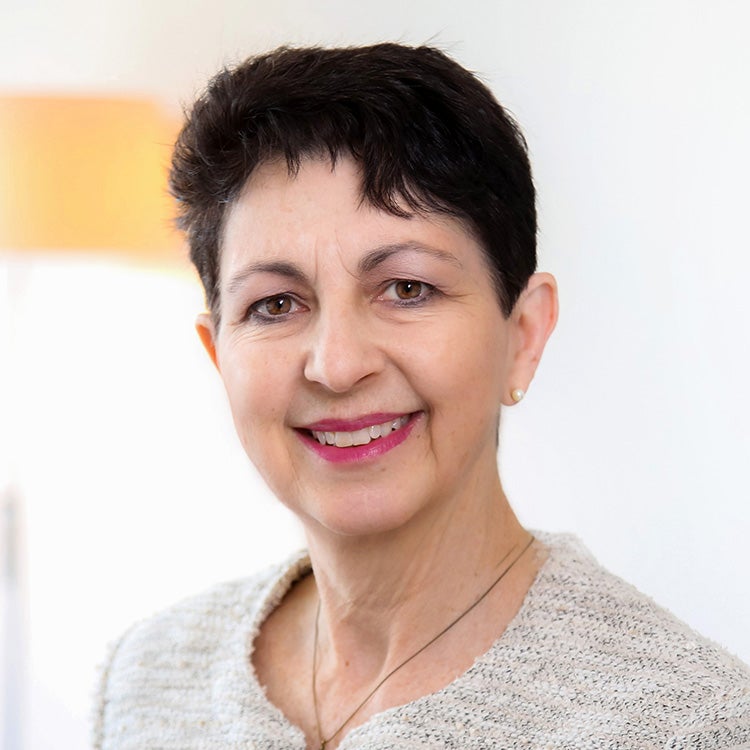August 2, 2016
The tone of the refugee debate has toughened in recent days, especially with regards to the issue of antisemitism. One side believes that the refugees, most of whom are Muslim, will import antisemitism to Germany – as if antisemitism in Germany had been vanquished after 1945. The other side believes that antisemitism comes not from Muslims or refugees, but rather from the middle of mainstream German society -- as if antisemitism in many parts of the Muslim world is a mere invention.
These stubborn positions neither do the complexity of the subject justice, nor do they help to develop solutions. The majority of refugees stem from Syria, Iraq, and Afghanistan, countries where the antisemitic climate was and is so stark, that almost the entire Jewish population was expelled or forced to flee decades ago. Hatred of Israel, which is practically raison d'être in these countries, and almost the entire Middle East, is accompanied by an increasingly religiously motivated antisemitism.
In 2009 a PEW study showed a near 100 percent prevalence of negative views of Jews in the Arab world. Recent studies confirm these figures. No wonder many in the Jewish community are concerned about the potential for radicalization of a few individual refugees. Only recently, however, with the attacks in Würzburg and Ansbach, have such concerns become mainstream. More and more voices are calling for the problem to be recognized as such and to be taken seriously, combated with new political countermeasures.
A holistic response to this challenge is long overdue. We must develop an all-encompassing societal response to this challenge before it merges with the already existing antisemitic attitudes in Germany.
One challenge to begin with is the paucity of information in German schools about Jewish life.In addition, German teachers learn little about the Holocaust during their teacher training, according to a new study. Also, according to a 2015 study by the Georg-Eckert-Institute, schoolbooks present a one-sided and distorted picture of Israel.
Given these open issues, the question must be posed: which tools are necessary to counter antisemitic resentments among refugees? This would help prevent scaremongering à la the AfD, which, incidentally, has little willingness to confront the antisemitism in its own ranks.
What helps are concrete measures. We now have a unique opportunity. As long as basic introductory language and integration courses are operating, we can teach migrants about democratic values and educate them about Jewish life and the importance of Israel for Germany. Because a significant proportion of the refugees themselves were subjected to persecution due to their ethnic and religious identity or sexual orientation in their homeland, such approaches might prove particularly fruitful.
For such an endeavor, however, there are neither enough proposals nor suggestions. There is some support from the migrant community. The German Alevite community has recently created an impressive educational school curriculum against antisemitism, Salafism and racism; German-Turks both co-founded and engage passionately in the Kreuzberg Initiative Against Antisemitism; leading Kurdish and Yezidi representatives promote causes for fellow Jewish citizens and the newly founded German Muslim Forum promotes the pressing development of concepts to transmit democratic values. The AJC and the Central Welfare Office of Jews in Germany are also actively supporting the Israeli organization IsraAID and its Jewish, Druze and Arab volunteers to help refugees in Germany and reduce prejudices through the power of encounter and exchange.
Despite such initiatives, the arrival of nearly two million refugees has revealed a lack of networks and organizations that take into account the specific interests and perspectives of minorities. Although many of the long-resident immigrants in Germany have demonstrated an exceptional level of commitment to supporting refugees, platforms for mutual exchange about integration and participation in society are still lacking.
One of those who has recognized this gap is the German-Yezidi journalist Düzen Tekkal, who has made a remarkable and stirring film about the fate of the Yazidis in Iraq and their lives in Germany. Through the arrival of the Yazidi refugees it became clearer to her that the existing Yazidi community in Germany should become more visible to assist newcomers. Together with others Tekkal founded the "Hawar" (Help) association, which forges bridges between the old and new immigrants and the majority society.
The Ethno-Medical Centre in Hanover, led by Ramazan Salman, also offers advice to migrants from migrants, offering a model for an effective empowerment strategy. For both Düzen Tekkal and Ramazan Salman, the fight against antisemitism is a natural part of their work, because it is part of the basic understanding of democracy.
It will take more initiatives, both from within and beyond immigrant circles, to prevent Salafists and other Islamists from achieving the upper hand with their anti-democratic authoritarianism. The danger exists, confirms the Federal Office for the Protection of the Constitution, given reports of several hundred attempts by Islamist groups to appeal to and possibly recruit refugees. As we have seen in Ansbach and Würzburg, even without direct appeals by local Salafists, Islamist ideology can prove attractive to individual refugees. This danger should be counteracted by increased prevention measures that promote more rapid societal integration.
So what are we waiting for? The Federal Government should bring these models together, with refugees and other experts, to assess what political and educational measures are needed to strengthen democracy and to counter antisemitism. A roundtable would be a strong signal, not only for Jews, but for all minorities who see their future in a free and democratic Germany.
Deidre Berger is Director of AJC Berlin Ramer Institute for German-Jewish Relations



